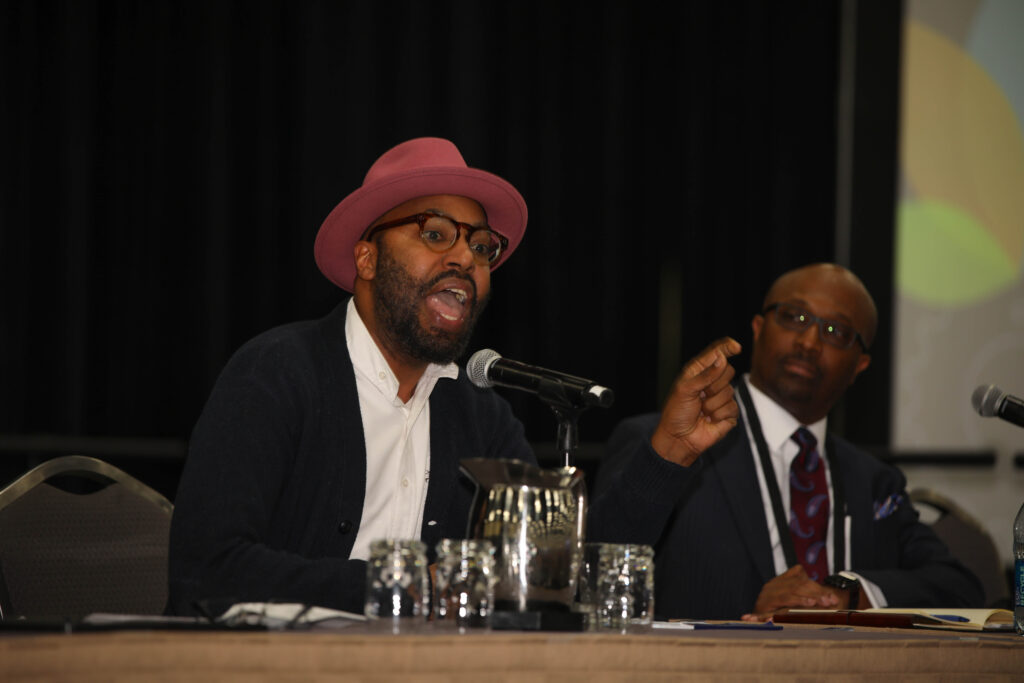In a Thought Leader session that could be best described as a near-religious experience, Professor Christopher Emdin of the University of Southern California reminded the lively audience of their overall mission to transform teaching and learning.
Comparing superintendents of schools to that of the role of a superintendent of a police department, he spoke about how leadership roles have evolved from the roles that they were schooled and trained for.
“The path we walk is all about cause,” said Emdin, a professor of education. “Moving out of our comfort zone sometimes makes us circle right back to where we started.”
Speaking with a softer voice and strategic calm, Curtis Cain, superintendent of the Rockwood School District in Eureka, Mo., and the 2022 National Superintendent of the Year, added that he never thought the work would be questioned so much. “The politicization of things makes us question how we respond,” he said, referring to the change in communities and factors that reflect beliefs.
Both presenters, during the conference’s annual Thomas Sobol Lecture, encouraged superintendents to use their credentials to not shy run away from difficult discussions. By declaring oneself to be an expert, one can maintain control of difficult discussions.
Leaders need to ask themselves if their community shares their values, the presenters continued. Superintendents should not be afraid to have an honest conversation, not with just the people they agree with, but with those who may represent opposing factions. There is no space for fear in teaching and learning. Leaders need to stay committed and lead, or keep the train running on the track to status quo and to failure. High expectations are the only thing in schools that need to be standardized.
(Brad Domitrovich is a senior editor with AASA’s Conference Daily Online and a communications consultant in Georgetown, Texas.)


